
Anouilh was born in Cérisole, a small village on the outskirts of Bordeaux and had Basque ancestry. His father was a tailor and Anouilh maintained that he inherited from him a pride in conscientious craftmanship. He may owe his artistic bent to his mother, a violinist who supplemented the family's meager income by playing summer seasons in the casino orchestra in the nearby seaside resort of Arcachon. He attended école primaire supérieure where he received his secondary education at the Collège Chaptal. Jean-Louis Barrault, later a major French director, was a pupil there at the same time and recalls Anouilh as an intense, rather dandified figure who hardly noticed a boy some two years younger than himself. Anouilh enrolled as a law student in the University of Paris, only to abandon the course after just eighteen months when he found employment in the advertising industry. He liked the work and spoke more than once with wry approval of the lessons in the classical virtues of brevity and precision of language he learned while drafting copy. In 1932, his first play, L’Hermine, written in 1929, was unsuccessful, but he followed it up with a string of others. He struggled through years of poverty producing several plays until he eventually wound up as secretary to the great actor-director Louis Jouvet. He quickly discovered he could not get along with this gruff man and left his company. During the Nazi occupation of France, Anouilh did not openly take sides, though he published the play Antigone, often viewed as his most famous work. The play criticises - in an allegorical manner - collaborationism with the Nazis. Mostly keeping aloof from politics, Anouilh also clashed with de Gaulle in the 1950s. In 1964, Anouilh's play Becket ou l'honneur de Dieu (Becket or The Honor of God) was made into a successful film, starring Peter O'Toole and Richard Burton. The screenwriter who adapted it, Edward Anhalt, won an Academy Award for his screenplay. Anouilh himself grouped his plays on the basis of their dominant tone: "black" (tragedies and realistic plays), "pink" (where fantasy dominates), "brilliant" ('pink' and 'black' combined in aristocratic environments), "jarring" ('black' plays with bitter humour), "costumed" (historical characters feature), "baroque", and my failures (mes fours). In 1970 his work was recognized with the Prix mondial Cino Del Duca.
Books

Le voyageur sans bagage
1937
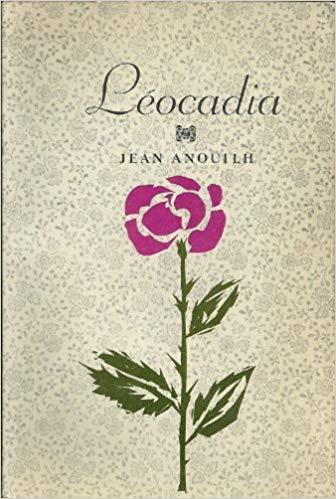
Leocadia
1940

Becket
1959
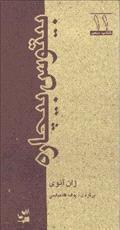
Pitous Beatus
1958
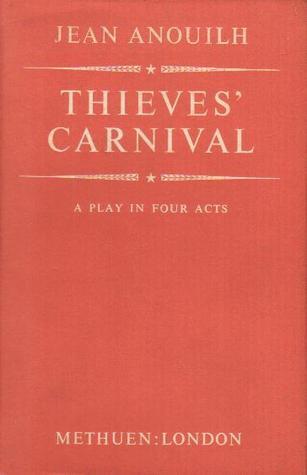
Thieves' Carnival
1952
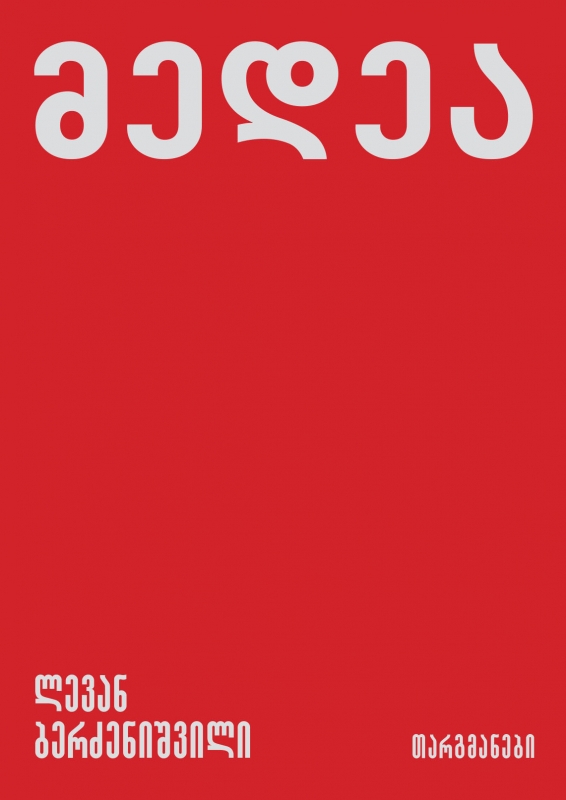
მედეა
2022
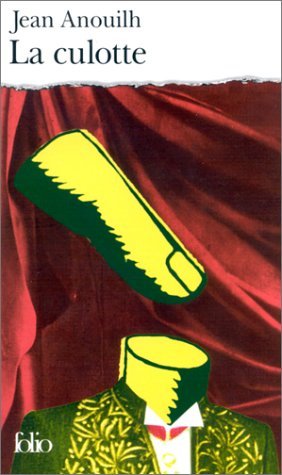
La Culotte
1985

(Five Plays)
Volume II
1959

Le Bal Des Voleurs /Thieves Carnival
1938

La sauvage
1965

Medee
1976

Le Rendez-Vous De Senlis & Leocadia
1941

Antigone
1944
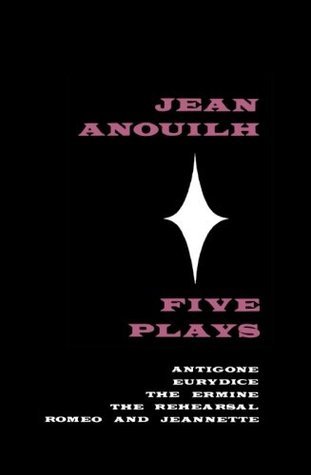
Five Plays
1958

Go Ask Alice A Real Diary PB N (Paperback) - Common
1972

Colombe
1951

Fables
1962

La Grotte
1961

Antigone
variazioni sul mito
2001
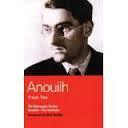
The Orchestra
1975
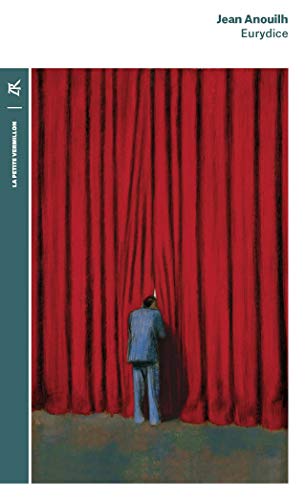
Point of Departure
1941

Anouilh
Five Plays
1987
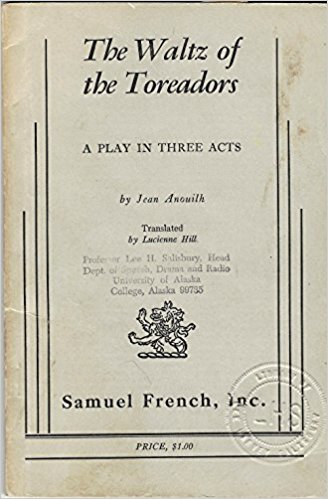
The Waltz of the Toreadors
1951

Ring Round the Moon
1948
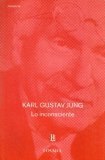
Antigona - Jezabel
1956

The Lark
1953